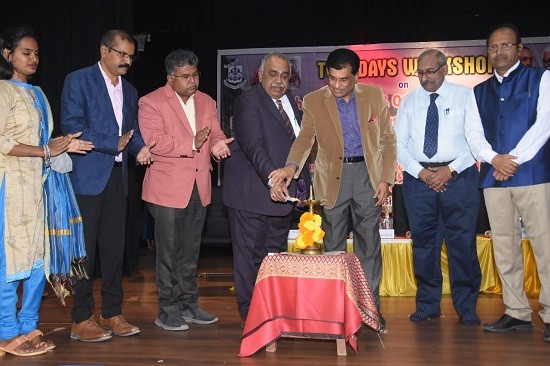mysore,march,10,2022(www.justkannada.in): “Tribals possess more traditional knowledge. By using their knowledge, they have understood the forests completely for centuries. More programs should be conducted to make their lives good,” opined Prof. G. Hemanth Kumar, Vice-Chancellor, University of Mysore.
He participated in a two-day workshop on the topic, “Role of Scheduled Tribes and other Traditional Tribals in Conserving the Karnataka State Natural Resources,” organized by the Karnataka State Tribals Research Institute, Mysuru, and the Legal Study Division, of the University of Mysore, held at the Lalitha Kala Rangamandira.
“Nearly one-fourth of the land area in India has been legally bifurcated as forest area. Whereas the thick forest area is only 12% out of it. In Karnataka, the Recorded Forest Area (RFA) is 38,284 sq. m. Out of it 28,690 sq. m. is reserved forest area and 3,931 sq. m. is protected forest area and 5,663 sq. m. is an uncategorized forest area,” he explained.
“An estimated 802.75 hectares of the forest area has been diverted for various other purposes between January 1, 2015, and February 5, 2019, under the Forest (Conservation) Act, 1980. Such diversions not only weaken the traditional conservation systems but also have grabbed away the survival rights, living rights, and rights to use forest resources of the tribal people and other communities that are depending upon forests,” he added.
“There are five national parks, 30 wildlife forests, 15 protected reserved and community reserved forest areas, which form 5.33% of the total geographical area. The tribal have rich knowledge about forests, natural resources, their usage, and related skills, types of forests, wildlife, flora and fauna, medicinal plants and herbs, and their health. Several researchers have also recorded their skills in their research works,” he observed.
Earlier, he inaugurated the two-day workshop. Prof. K.S. Rangappa, former VC, Prof. R. Shivappa, Registrar, University of Mysore, Prof. Ramesh, Head, Law Department, and others were present.








